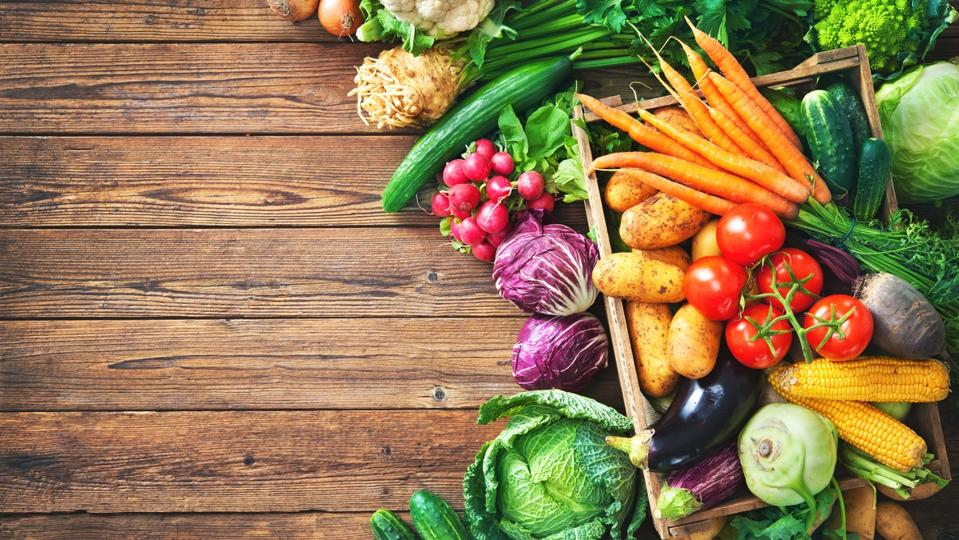List of the Best Low Carb Fruits and Vegetables
Incorporating low carb fruits and vegetables into your meal plan is an effective way to maintain your low-carb goals while also ensuring you receive essential vitamins and minerals.
For many, getting enough fruits and vegetables each day can be a challenge, but it’s crucial for overall health. These foods are rich in nutrients that support the body’s daily functions and have been shown in research to reduce the risk of certain cancers and other chronic diseases.
In addition to their health benefits, fresh fruits and vegetables are typically low in fat and calories, making them an appealing choice for those who are mindful of their weight. However, some dieters may hesitate to include them in their meals due to concerns about carbohydrate content.
While it’s true that fruits and vegetables contain carbohydrates, that shouldn’t discourage you from including them in your diet. The key is to choose the right options and consume them in appropriate amounts.
Different fruits and vegetables have varying levels of carbs, so selecting low-carb varieties allows you to enjoy the health benefits of these delicious and versatile foods while adhering to your low-carb lifestyle.
Continue reading for our curated lists of the best low-carb fruits and vegetables to include in your healthy low-carb eating plan. These selections will help you meet your nutritional needs while staying on track with your dietary goals.
List of the Best Low-Carb Fruits
Some low-carb diets suggest avoiding fruit, at least during certain phases, due to its higher carbohydrate content compared to most vegetables, primarily because of the naturally occurring sugars found in fruit.
If your doctor has advised you to steer clear of sugar, particularly fructose, it’s essential to follow their recommendations. However, if you haven’t received such guidance, you can likely incorporate fruit into your low-carb diet. Here are some of the best low-carb fruits to consider:
- Watermelon
This classic summer fruit is one of the lowest in carbohydrate content, containing only 7.55 g of carbohydrates per 100 g. While it has low fiber content, most of its carbs are absorbed.
Watermelon is also a good source of vitamin A and has a high water content, which can help you feel full while consuming fewer calories. Plus, the rind of the watermelon has health benefits as well!
- Berries
Berries are a favored option for those monitoring their carbohydrate intake. Here’s a breakdown of some popular choices:
- Strawberries: Among the berries, strawberries have the lowest carb content, with 7.68 g of carbohydrates and 2 g of fiber per 100 g, resulting in a net of 5.68 g of carbohydrates.
- Blackberries: These berries contain 9.61 g of carbohydrates per 100 g but also provide 5.3 g of fiber, leading to a net carb count of just 4.31 g.
- Raspberries: Another excellent option, raspberries contain 5.44 g of net carbohydrates per 100 g. They are rich in antioxidants, potassium, vitamin C, and other essential nutrients. Raspberries also contain phytochemicals, which are compounds that may help prevent certain chronic diseases.
Incorporating these low-carb fruits into your diet can help you enjoy their delicious flavors while staying aligned with your low-carb goals.
- Cantaloupe
This refreshing orange melon is perfect for hot summer days, containing only 8.16 g of carbohydrates and 0.9 g of fiber per 100 g, resulting in a net of just 7.26 g of carbohydrates. Cantaloupe is also classified as a low-fructose fruit, making it a great option for those mindful of sugar intake.
Some people enjoy pairing cantaloupe or honeydew with tuna salad for a unique flavor combination. You can also blend cantaloupe with lime, mint, and water to create a delicious and refreshing agua fresca.
- Avocados
Believe it or not, avocados are technically fruits, and they come with relatively low carbohydrate content. In every 100 g of avocado, you’ll find approximately 8.53 g of carbohydrates and 6.7 g of fiber, leading to a net carb count of only 1.83 g!
Plus, avocados are packed with healthy monounsaturated fats, which are beneficial for heart health. You can enjoy sliced avocado on top of salads or wraps, create a tasty avocado and tomato salad, or serve it alongside boiled eggs. There are plenty of reasons to include avocados in your diet—check out 16 more reasons why they’re a must-have!
- Honeydew
Another delightful melon, honeydew contains about 9.09 g of carbohydrates and 0.8 g of fiber per 100 g, resulting in a net of 8.29 g of carbohydrates. This fruit is a good source of vitamin C and potassium, an essential electrolyte for maintaining healthy blood pressure, pH balance, and metabolism.
A fun way to enjoy honeydew is by wrapping melon balls in prosciutto for a sweet-and-salty appetizer that’s sure to impress.
- Peaches
Sweet and juicy, peaches are surprisingly low in carbohydrates. For every 100 g of peach, you’ll get around 10.1 g of carbohydrates and 1.5 g of fiber, netting just 8.6 g of carbohydrates.
For a delicious low-carb snack, try pairing fresh peaches with cottage cheese for a satisfying combination of flavors and textures.
Incorporating these low-carb fruits into your diet can help you enjoy their natural sweetness while keeping your carbohydrate intake in check.
List of the best low carb vegetables
Vegetables often get a better reputation than fruits when it comes to carbohydrates. Generally, they contain less sugar and, therefore, fewer carbs. When following a low-carb diet, vegetables should still play a vital role in your nutrition.
They are high in fiber and lower in calories per serving compared to most other food groups. Additionally, vegetables are packed with beneficial compounds, including phytochemicals, vitamins, and minerals.
Typically, the higher the water content in a vegetable, the lower its carbohydrate content per serving. Here are some of the best low-carb vegetable options to include in your diet:
- Cucumbers
Cucumbers are a refreshing and nutritious addition to any salad, whether it’s a classic Greek salad or something more creative! When peeled, cucumbers contain just 2.16 g of carbohydrates per 100 g. If you prefer them with the peel on, they contain slightly more at 3.63 g, which is still quite low.
- Iceberg Lettuce
Although often considered one of the least nutritious vegetables, iceberg lettuce is popular for its crisp texture. It contains only 2.97 g of carbohydrates per 100 g. To create a low-carb salad with a variety of nutrients, pair iceberg lettuce with other vegetables from this list.
- Celery
Celery shares the same carbohydrate content as iceberg lettuce, with 2.97 g of carbohydrates per 100 g. This versatile vegetable can be enjoyed in salads, casseroles, or even filled with unsweetened nut butter for a satisfying snack.
- White Mushrooms
Mushrooms are a fantastic low-carb option, containing only 3.26 g of carbohydrates per 100 g. They can be easily added to an egg white omelet for a healthy, low-carb breakfast or used in various dishes for extra flavor and texture.
Including these low-carb vegetables in your meals can help you meet your nutritional needs while keeping your carbohydrate intake in check. They are versatile, flavorful, and an excellent choice for anyone looking to maintain a balanced diet.
- Spinach
Spinach is an excellent low-carb vegetable, containing only 3.63 g of carbohydrates per 100 g. To put this in perspective, that’s about 1 g of carbohydrates per cup! This means you can enjoy generous servings of spinach salads, topped with lean chicken breasts and fresh strawberries for a delicious, nutritious meal.
- Swiss Chard
Another powerhouse in the leafy greens category, Swiss chard packs in just 3.74 g of carbohydrates per 100 g. It’s versatile and can be deliciously incorporated into soups or sautéed with garlic for a flavorful side dish.
- Broccoli
Raw broccoli is a nutrient-dense cruciferous vegetable that contains 6.64 g of carbohydrates per 100 g, along with 2.6 g of fiber.
This nets out to only 4.04 g of carbs when you account for the fiber. Broccoli can be enjoyed raw in salads, lightly steamed, or stir-fried with garlic, ginger, and a splash of olive oil for a healthy side.
- Bell Peppers
Bell peppers make for a light and crunchy snack when eaten raw, and they are equally delicious when sautéed with your favorite vegetables. They contain just 6.03 g of carbohydrates per 100 g, making them a colorful and nutritious addition to any meal.
- Zucchini
Zucchini is a fantastic low-carb vegetable that can be transformed into “zoodles” (zucchini noodles) using a spiralizer or serrated peeler. With just 3.11 g of carbohydrates per 100 g, zucchini serves as a delightful alternative to traditional pasta. You can also try it thinly sliced, grilled, or roasted, layered with other vegetables and sauce for a low-carb “lasagna.”
- Cauliflower
Cauliflower is another excellent choice, with only 4.97 g of carbohydrates per 100 g, and when you factor in its 2.0 g of fiber, it nets just 2.97 g of carbs. Beyond enjoying its florets, you can turn cauliflower into a tasty low-carb alternative to rice or grains.
Simply grate it in a food processor and serve it cooked or raw, either as a side dish or mixed with other vegetables and proteins, topped with your favorite dressing.
By incorporating these low-carb vegetables into your meals, you can enjoy a wide variety of flavors and textures while maintaining a healthy, balanced diet that supports your low-carb goals.
- Asparagus
Asparagus is a delicious and nutritious vegetable, containing only 4.11 g of carbohydrates per 100 g. You can enjoy it steamed or brushed with a bit of olive oil and roasted in the oven or on the grill. For a burst of flavor, top it off with a squeeze of fresh lemon juice.
- Alfalfa Sprouts
Alfalfa sprouts, which are the sprouted seeds of the alfalfa plant, contain just 2.1 g of carbohydrates per 100 g. These nutritious sprouts make an excellent topping for salads, adding a crunchy texture and fresh taste.
- Radishes
Radishes are often overlooked but are both tasty and nutritious, containing just 3.4 g of carbohydrates per 100 g. Sliced radishes can enhance salads, or you can enjoy them whole with a pinch of sea salt or dipped into your favorite spread or dressing for a crunchy snack.
- Arugula
Arugula is a versatile leafy green that has only 3.65 g of carbohydrates per 100 g. Known for its peppery and slightly spicy flavor, arugula is a fantastic source of vitamin A, vitamin K, vitamin C, folate, and calcium. Use it in salads combined with other greens, or incorporate it into sauces, soups, or stews for added nutrition.
- Radicchio
Radicchio offers a unique flavor and contains just 4.48 g of carbohydrates per 100 g. Its sturdy leaves can be used as lettuce wraps, filled with your choice of ingredients. You can enjoy radicchio raw in salads or cooked in various dishes, including grilled preparations that bring out its natural sweetness.
- Tomatoes
Tomatoes are not only delicious but also low in carbs, containing just 3.89 g of carbohydrates and 1.2 g of fiber per 100 g, which nets only 2.69 g of carbohydrates.
Enjoy tomatoes raw as a healthy snack with a sprinkle of salt and pepper, use them as toppings on salads or sandwiches, or cook them into soups and sauces for added flavor.
Other Vegetables
In addition to fresh vegetables, pickled or fermented options like cucumber pickles, cabbage sauerkraut, or kimchi can be great low-carb choices. These fermented vegetables not only add variety to your meals but also come packed with gut-healthy probiotics.
Just be sure to check the ingredient list to avoid added sugars, opting for options that prioritize fermentation for the best health benefits.
Incorporating these low-carb fruits and vegetables into your diet can help you maintain a nutritious and balanced eating plan while keeping your carbohydrate intake in check.
Vegetable Nutrition Chart
Here’s a quick and handy guide to the nutritional values of various low-carb vegetables. You can take this along on your next grocery shopping trip! Remember, the values listed are for raw vegetables, as cooking can slightly alter carbohydrate content.
| Vegetable | Total
Carbohydrates |
Fiber | Net Carbs | Calories | Fat | Protein |
| Alfalfa Sprouts | 2.1 g | 1.9 g | 0.2 g | 23 | 0.69 g | 3.99 g |
| Celery | 3.0 g | 1.6 g | 1.4 g | 16 | 0.2 g | 0.7 g |
| Iceberg Lettuce | 3.0 g | 1.2 g | 1.8 g | 14 | 0.1 g | 0.9 g |
| Zucchini | 3.11 g | 1.0 g | 2.11 g | 17 | 0.32 g | 1.21 g |
| White Mushrooms | 3.3 g | 1.0 g | 2.3 g | 22 | 0.3 g | 3.1 g |
| Radishes | 3.4 g | 1.6 g | 1.8 g | 16 | 0.1 g | 0.68 g |
| Spinach | 3.6 g | 2.2 g | 1.4 g | 23 | 0.4 g | 2.9 g |
| Cucumber | 3.6 g | 0.5 g | 3.1 g | 16 | 0.1 g | 0.7 g |
| Arugula | 3.65 g | 1.6 g | 2.05 g | 25 | 0.66 g | 2.58 g |
| Swiss Chard | 3.7 g | 1.6 g | 2.1 g | 19 | 0.2 g | 1.8 g |
| Asparagus | 3.88 g | 2.1 g | 1.78 g | 20 | 0.12 g | 2.20 g |
| Tomatoes | 3.89 g | 1.2 g | 1.69 g | 18 | 0.2 g | 0.88 g |
| Radicchio | 4.48 g | 0.9 g | 3.58 g | 23 | 0.25 g | 0.25 g |
| Bell Peppers | 5.88 g | 1.2 g | 3.51 g | 18 | 0.0 g | 1.18 g |
| Cauliflower | 4.97 g | 2.0 g | 2.97 g | 25 | 0.28 g | 1.92 g |
| Broccoli | 6.64 g | 2.6 g | 4.04 g | 34 | 0.4 g | 2.8 g |
All nutritional values are determined by the USDA for raw, uncooked vegetables.
Incorporating these low-carb vegetables into your meals can enhance your nutrition while keeping your carbohydrate intake in check!
Health Benefits of Blueberries

A graduate of Computer Science and Information Management Technology. Diploma – Caregiving, Certificates – Dementia and Diabetes Awareness and Management. A researcher, blogger, songwriter, singer and acoustic guitarist. Born in an environment where natural talents such as healing are imparted at our natural birth. This natural talents of healing is the result of our genetic inheritance and the training from family environment.













